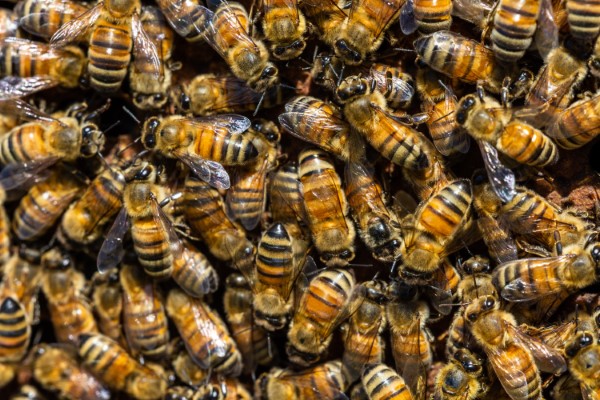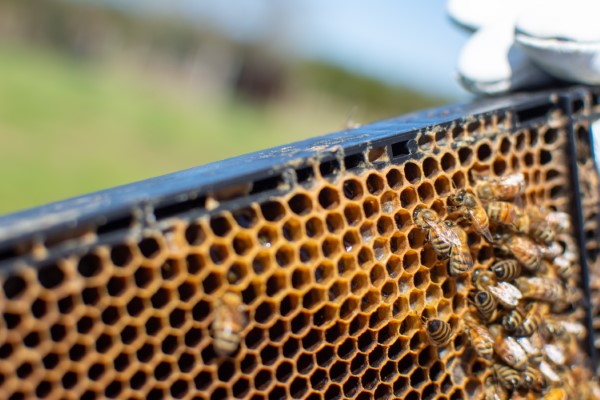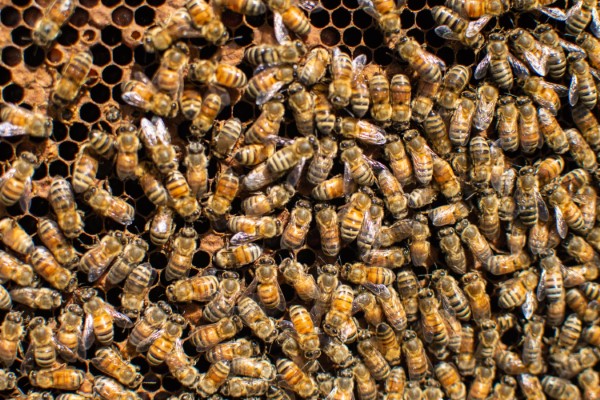
by Ashleigh Newnes and Tracey Burks
We often see things in nature in only one part of their life cycle. For example, we may hear the frog sitting beside the pond but we missed the fascinating journey it took to go from an egg to an adult frog.
One place, however, where you can witness not only many stages of the occupants’ lives but also how hard they work to survive is inside a beehive.
Beekeepers begin to check on overwintered or brand new installed colonies in April. During their maintenance visits, the beekeeper looks for the queen, newly laid eggs, growing larvae and worker bees bringing pollen to the hive to feed these new members of their family.
By May, the human visits to the hive lessen in frequency, but the beekeeper is monitoring hive growth and the health of the entire colony, and adding the boxes (or supers) so the growing population has plenty of room to continue the year’s work. May is an important time in the “honey flow,” as a large amount of nectar plants are blooming. The bees will continue to build in numbers with a huge emphasis on honey for the future. They normally produce much more than they will need for winter so that is how a beekeeper is able to harvest a bit of this precious liquid.

Photos by Ashleigh Newnes
The term “busy bee” has become common because the bees don’t take many breaks in gathering pollen, making honey and raising young.
Another reason to make sure there is plenty of room in the hive is so the colony doesn’t signal a new queen cell to be built and a portion of the colony to swarm. Once they decide to swarm, there is little that can be done to change their minds. The swarm’s mission is to protect the queen and find a new home. For a day or two, they will gather anywhere the queen lands—tree branches, fences and even in strange places such as bicycles, sides of cars and gutters. These swarms range in size from a softball to football to much larger still. The cluster is usually gentle and approachable because they are keeping their queen safe.
Back in the original hive, there is room for the remaining bees to continue to nurse baby bees, guard their home and forage for pollen that will be used in the honey making process.
Pollen sources in May include dandelions, willow trees, daisies, comfrey, sunflowers, clover, rosemary, sage and flowering bushes, to name a few.

A great way to provide nectar plants in your yard is by planting native wildflowers, bushes and trees. Pollinator plots will draw many insects and birds and in return provide the grower with beautiful sights and sounds all growing season long.
If you need a swarm removed, you can call one of the beekeepers with the Rutherford County Beekeepers Association (RCBA). They will be happy to have the bees and provide the community with local honey.
Additionally, for those interested in learning more about honeybees, the RCBA meets the first Monday of each month at 7 p.m. at Lane Agri-Park. For more information on the RCBA, call 615-274-3725, email rutherford.beeclub@gmail.com or visit rutherford.tennessee.edu and click Agriculture.












